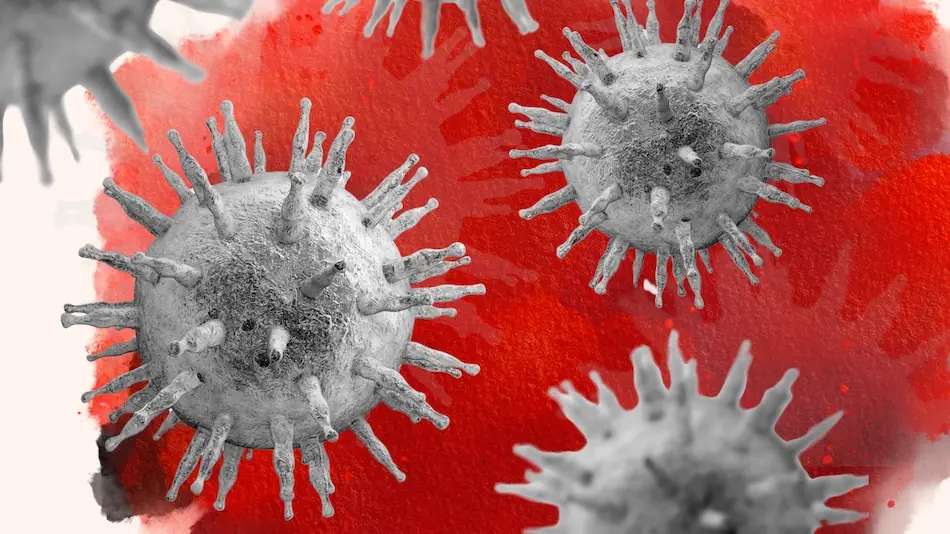Primary biliary cholangitis (PBC) is a surprisingly common autoimmune disease. PBC is chronic, extremely painful, and can lead to end-stage liver cirrhosis. PBC is also a medical mystery.
PBC develops when T cells mistakenly start to attack a person’s own liver bile ducts. But why do T cells suddenly start attacking the bile duct? And why is PBC ten times more common in women?
Immune system researcher Job Rocha is working to discover what drives T cells to target the bile duct. This work is a key step toward developing therapies to help patients with PBC.
Now Rocha has received major support for his research. He was recently awarded the 2025 BioLegend Graduate Fellowship in Immunology, which will provide $25,000 toward his stipend (salary support), tuition and fees as a UC San Diego Biological Sciences graduate student. This prestigious fellowship is granted by the Program in Immunology, a joint initiative of LJI and UC San Diego.
“This fellowship is a great honor,” says Rocha. “It means a lot for my career as a scientist, and it means my research can move forward.”
BioLegend, acquired by life sciences and diagnostics company Revvity in 2021, was founded by Gene Lay, DVM. Based in San Diego, Revvity’s BioLegend supports the scientific community in many ways, including underwriting scholarship programs.
Solving the mysteries of PBC
Step one to solving a medical mystery? Assemble the right team.
Rocha grew up in Mexico and earned his undergraduate degree through Universidad Nacional Autónoma de México’s Center for Genomic Sciences. He originally joined LJI as a research technician and bioinformatician in LJI’s Vijayanand Lab. This work sparked his interest in immunology—and inspired him to join the UC San Diego Graduate Program.
Today, Rocha is a UC San Diego graduate student working in the labs of three LJI co-mentors: LJI Professor Hilde Cheroutre, Ph.D., LJI Professor Mitchell Kronenberg, Ph.D., and LJI William K. Bowes Distinguished Professor Pandurangan Vijayanand, MD, Ph.D.
“Job has a passion for immunology, and he also brings impressive bioinformatics skills to the table,” says Kronenberg.
“They couldn’t have found a better candidate for the BioLegend Fellowship. It’s so well deserved,” adds Cheroutre. “Job is so special, so capable, and I know he’s going to do many impressive things.”
By combining skills from three different labs. Rocha has become the right person to look at PBC with a fresh perspective. He can zoom in to see how certain kinds of T cells may drive the development of PBC.
Important T cell clues
Rocha is especially interested in the role of T cells called mucosal-associated invariant T (MAIT) cells. MAIT cells are known for responding very quickly to infections. Their speed makes them valuable for fighting pathogens, but they might also cause a lot of harm in autoimmune disease.
As Rocha points out, MAIT cells make up 10 to 40 percent of immune cells in a healthy liver. He wants to know exactly what they are doing in that tissue. Can he detect any difference in MAIT cells if someone develops PBC?
“Are the MAIT cells pathogenic or protective?” asks Rocha. “If they are pathogenic, then maybe we can think about how to deplete these cells in the future to slow down disease progression.”
The work includes analysis of samples of liver resident lymphocytes from PBC patients and controls, obtained from Andy Mason, MBBS, FRCPI, of the University of Alberta. Rocha is also working with Cheroutre and Vijayanand to analyze how specialized subsets of T cells, such as MAIT cells, originate in the human thymus, in a collaboration with Rady Children’s Hospital.
A closer look at sex-based differences
The new BioLegend Fellowship also supports Rocha’s investigation into sex-based differences in PBC development. Many autoimmune diseases are more common in people assigned female at birth—and immunologists want to know why.
“PBC is more common in women versus men. In fact, some studies have highlighted a ten-to-one ratio,” says Rocha. “For every male with PBC, ten women have it. That’s a really dramatic difference.”
Rocha’s experimental skills and bioinformatics background will allow him to capture and analyze important data on how MAIT cells from men and women might differ. Solving that mystery may shed light on other autoimmune diseases, such as lupus and multiple sclerosis, which are much more common in women.
Rocha is hopeful that this new work could lead to answers. “We are hoping to understand what drives PBC, of course, but it would be really nice if we also had insight into a different biliary disease or a different autoimmune disease that shows similar features,” says Rocha.





